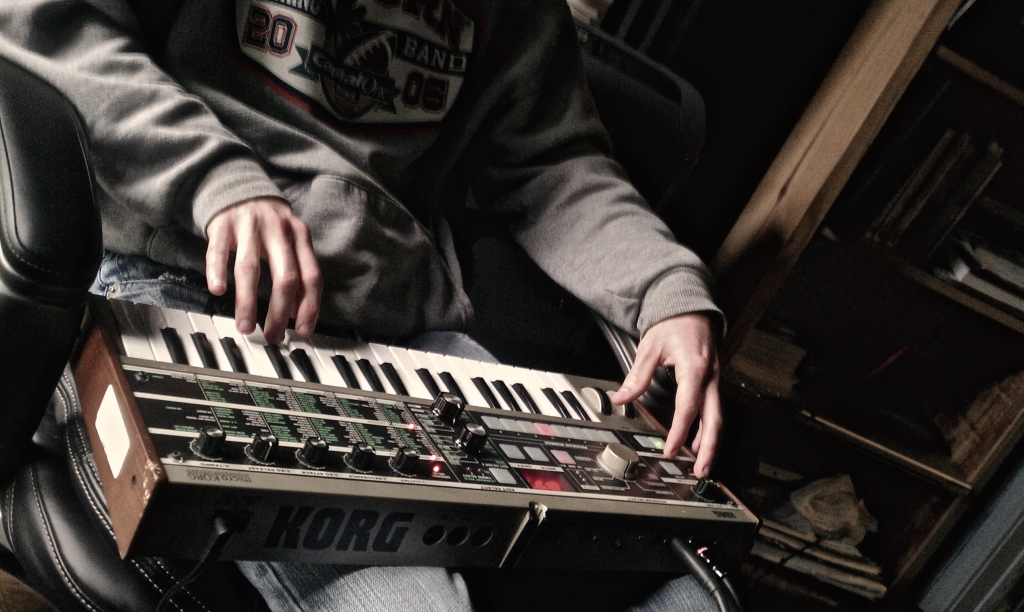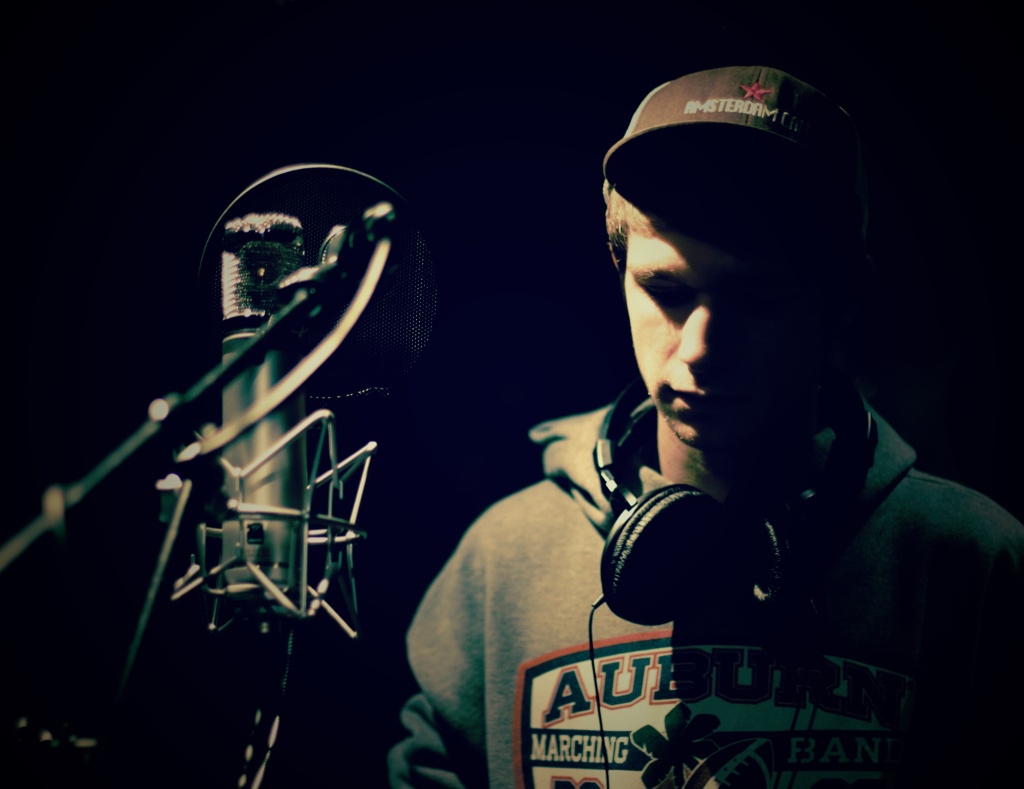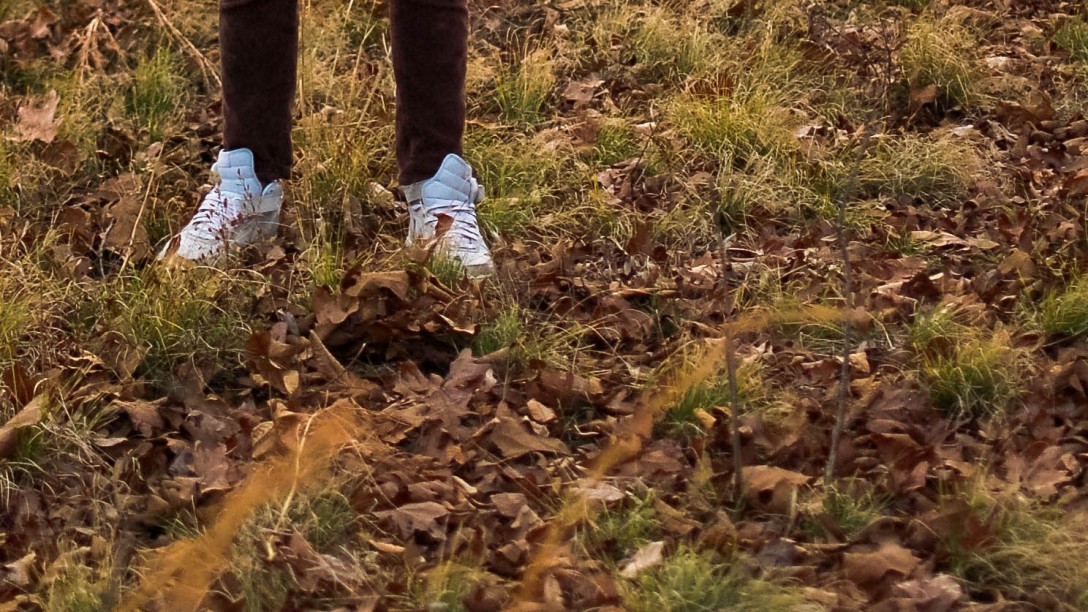
Over six years and 70 officially released songs after its initial release, Joshua Aubrey Jackson returned with a remaster and reissue of Practice Shots—his fourth full-length release under the Fiery Crash name. Now sounding better than ever, the album has cemented itself as the defining record of his early career.
In recent years, Jackson has made more mature and higher-fidelity records—even in his home-recorded projects—but Practice Shots still stands as a testament to blossoming wisdom and craftsmanship and marks a turning point in his greater creative trajectory.
In light of this reissue, it seemed fitting to give the record a retrospective analysis and reach out to some of the people it has touched. This is the story of Practice Shots.
No Hand to Mediate: Before Practice Shots
Joshua Aubrey Jackson has been a wildly prolific songwriter since 2011, releasing multiple projects annually (with the exception of 2016, where Jackson only released a lone single). In the two years between Practice Shots and releasing his first record as Quality Strangers (the now-deleted Gathering Colour), he put out seven full-length records, five EPs, three singles, and a B-sides/covers compilation. These 118 songs are mostly instrumental, but they still cover a lot of ground, with Jackson exploring ambient, drone, post-rock, indie-folk, acoustic balladry, and more. Many of them, admittedly, aren’t very good, and several of these releases are no longer downloadable. Some records, though, still hold up pretty well (I’m partial to Fiery Crash’s instrumental debut full-length, Postview Journal, and the mini-album Songs with Seth Brown).
Though Jackson’s early work is fascinating in its own right, the most significant year of his career was 2013, where he released three LPs, an EP, a single, and the aforementioned compilation. Jackson’s first release of the year was Carbondale, which captured Jackson’s love for Elliott Smith and My Bloody Valentine in a record that’s uneven at best. The record’s pacing makes the 49-minute runtime feel unearned, but its quieter moments have aged well. Also, Carbondale earned Fiery Crash’s first music blog coverage (which, even at the time of publishing, noted “some youthful missteps”). Nevertheless, this first LP of primarily vocal material was a big step forward.
The compilation that followed, Gable Woods, was a bit self-indulgent, but it’s an interesting picture of Jackson’s influences at the time. Also, if you ever wanted to hear a folksy cover of Slowdive’s “Alison,” this compilation has you covered. Jackson’s next release was Melancola, the last record under the Quality Strangers moniker. Melancola has aged the best of Jackson’s instrumental work. It feels like the culmination of all of his and collaborator Thomas Burns’ best attempts to sound like a Kranky band–but actually achieving their goal. It’s a shame that Quality Strangers have seemingly been laid to rest, but it’s gratifying to finally hear this project succeed in producing a great record.
Then, on June 25, 2013, Fiery Crash released Practice Shots.

You Look Like You’re Wise: Reception and Evolution
Practice Shots wasn’t an overnight success or indie sensation by any stretch of the imagination. It was never intended to be. Nevertheless, it slowly gained attention from blogs and other organizations that would dramatically alter Jackson’s creative trajectory. GoldFlakePaint hailed it as “an album to truly lose yourself in,” putting it on their “Favourite Albums of 2013” list. Independent Clauses’ Stephen Carradini said it most succinctly: “I don’t know when Jackson will let up, but at this point, he’s clicking on all cylinders.”
A few months after, Fiery Crash released the EP For Tomorrow Will Worry About Itself, a seven-track collection that feels like a natural extension of the textures explored on the preceding full-length. Once again, Carradini praised the release, naming it the top EP of 2013 and “the start of something incredible.” He further elaborated on Jackson’s evolution as an artist from “an untempered outfit awash in reverb to a fine-tuned singer/songwriter project with a clear vision.”
Meanwhile, Practice Shots found its way to Justus Stout, then the Vice President of Operations at The Nehemiah Foundation for Cultural Renewal. Stout brought the record to his colleagues at the NFfCR—a non-profit that helped Christian artists realize and execute their creative visions with no strings attached. Founder and President Michael Minkoff listened to the record after Stout’s prodding and was impressed by what Jackson was able to accomplish on his own with his limited resources. He writes:
The record did have the intimate and personal ‘bedroom ballad’ feel you would expect from a single singer-songwriter effort, but it had avoided the self-indulgence and emotional narrowness that plagues so many artistic products of a single mind.
Let me reiterate how rare this is in a lone artist. When you are working by yourself, you have no one to give you any feedback—good or bad. There is no one shaking his head in the corner. Or nodding it. So it’s very easy for singer-songwriters to succumb completely to either paralyzing insecurities (e.g., Elliott Smith) or an obnoxious lack of self-editing (e.g., Sufjan Stevens).
Josh Jackson somehow avoided both extremes. How a single person was able to achieve such a feat, I didn’t know. But I wanted to meet him. And work with him, if he would let us. So Justus and I agreed we should invite him to the studio for an initial meeting in preparation for a future project.

After the release of For Tomorrow …, Minkoff reached out to Jackson, who had already written and started to record this future project. They ended up partnering on 2015’s In Clover, which would become the final record in the Fiery Crash project. The collaboration allowed Jackson to broaden his sonic palate by giving him access to equipment and experienced personnel. Featuring string arrangements, lap steel, and professional mixing and mastering, the resulting project birthed Fiery Crash’s most mature songs yet.
In the midst of recording and producing In Clover, Jackson released the first record in his Summerooms side-project. As he built connections to professional engineers and producers, he formally made a distinction between his home-recorded albums and his more serious studio projects. The impact and artistry of Summerooms is an essay for another time, but soon Jackson would make another name change, signaling the end of Fiery Crash as it currently existed.
In 2016, Jackson had his quietest year of production to date. As always, he was working on music in the background, but his only formal release that was the iPhone-recorded single “Skin.” An announcement accompanied the track, stating that “the name ‘Fiery Crash’ is seeing its last days.” The decision would be formalized the following year when Jackson released Town Runner, his debut EP as Make Sure. The record was produced in partnership with Renew the Arts—the daughter organization of the NFfCR. Jackson’s relationship with the organization and its artist community continues to this day, and his work as Make Sure finds him even wiser and more collaborative than before.
Those Chords, They Still Hold Me Dear
While, contextually, Practice Shots was definitely a turning point in Jackson’s musical career, let us not forget to consider the record and its merits. Simply put, Practice Shots holds up remarkably well and stands on its own alongside his later, more mature work content. Moreover, it’s the definitive record of the Fiery Crash project. It’s not necessarily defining of Jackson’s greater artistic output, and it’s maybe not even the “best” record from the project (In Clover, as previously stated, boasts the best Fiery Crash lyrics and production, hands down). But no record better captures Jackson’s vision and feelings in that season of his music.
The record opens with Jackson’s baritone and an acoustic guitar on “Cada Año.” Shimmering ambient textures give way to the album’s signature drum machines, establishing a hazy tone that shines with greater clarity in this new remaster while maintaining the dreamy nature of the original recordings. Whenever I think of Practice Shots, I hear this song’s melody in my head—and not just because it’s first. It showcases a richness in Jackson’s voice; he feels supremely comfortable, and the feeling is contagious.
While “Cada Año” does much to set the mood of Practice Shots, the lyrical heart of the record is the following track, “Land Beneath the Shades.” One of the greatest beneficiaries of the new remaster, the song is built around a looped drum machine and acoustic guitar. It’s one of the record’s most enveloping songs, and the simple refrain of “I want to be calm” is the album’s thesis statement. With verses that contain seemingly “calm” moments, the song acknowledges the unrest that can lie within life’s quiet moments. Practice Shots is built around that tension. There aren’t moments of high drama, but rather a simmering unease—an ebbing and flowing of feeling and numbness. Sometimes you want to be calm; other times, like the final lyric of the song states, you just want to be done.
It makes sense, then, that the album’s most upbeat track—the enthusiastically-punctuated “Vollybeachball!”—carries some of the album’s darkest lyrical moments. It drives home the irony that tranquility and turmoil often occupy the same space. However, by the album’s closing track “I Was Tall,” Jackson comes to peace with this reality by focusing on the moments of peace rather than their disruptors. The song deals with a breakup. The first verse chronicles the event and the fallout, but the second verse focuses on the good contained in that season. Though it doesn’t change a relationship’s dissolution, perspective can determine how you move forward.

Well, What Have We Learned?
As the years have passed, Practice Shots has maintained its impact. If you talk with people who were close to Jackson when he released the record, you will hear similar stories. Seth Brown, who sang backup vocals on two tracks and currently plays in the Birmingham, Alabama outfit Lady Legs, notes that he immediately recognized Jackson as “a wise musician with undeniably golden ideas.” He continues by saying, “[Practice Shots] holds a special place in my heart as a sort of time-stamp album for my late teens, and I consider it still one of my all-time favorites.”
David Bizilia, another of Jackson’s friends and collaborators, echoes the record’s personal significance and continued importance. He reflects, “When this album entered my ears as an early high schooler, I heard all my quirky high school feelings were wrapped up in the record. Rebellion, experimentation, awkwardness, quietness, exploration, newness—all those thoughts swell together to make who you are today. It’s funny to think of ourselves back then. This record takes me there in the most honest and pleasing way. Six years later, Practice Shots still pulls me in.”
Jackson Gafford, who records and performs as Captain Kudzu, notes the album’s influence on his own creative output. “At the time Practice Shots came out,” he says, “I was just starting to write my own songs, and l would listen to it every day. It was like a benchmark of how an album should flow, and getting to actually talk to Josh about making it was hugely inspirational.” Like with Brown and Bizilia, it’s also a record tied to particular times and memories from his own life. Gafford says, “There are still things from that album and that time in our lives—writing and recording-wise—that I pull from both consciously and subconsciously to this day.”
These nostalgic touchpoints don’t end with people of Jackson’s own age. Justus Stout recalls that when he first heard Practice Shots, it “woke me up to the resting parts of me that are good enough to keep around forever.” He continues: “It is a rare thing to bring these relics to the surface without pain, and I’m forever indebted to Josh for helping me bring them to the surface in peace. Practice Shots is a resurrection of the dead-to-memory, and nothing less.”
Listening to Practice Shots is like reading someone else writing your own diary. It astutely chronicles teenaged tension in all its moody charm. It shamelessly memorializes a time that many would wish to forget, and it’s gentle and understanding while it acts as an avatar for the listener’s own adolescence. Practice Shots is a moment of focus and clarity in the restless creativity of Joshua Aubrey Jackson’s early output, and it offers the same experience to everyone who might open themselves to it.
Practice Shots [Remastered] is available now on all digital platforms. Follow Joshua Aubrey Jackson’s continued musical efforts on Facebook and Instagram.
